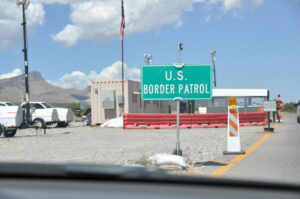Many years ago, I traveled to Cuba, which, as most Americans recognize, is governed by a dictatorial regime. One day I took a cab from Havana to a small town named Trinidad. The drive took several hours and I arrived at dusk. I paid the cab driver and he returned to Havana.
There were no hotels in Trinidad, but people would rent a room in their house. When I attempted to rent a room, the owner asked to see my passport. The regime required her to keep track of who stayed in her house. You know — to keep Cubans “safe.”
It was at that point that I realized that I had forgotten my passport back in my hotel room in Havana. The proprietor had a look of horror on her face. She said that she could not dare to rent a room to me. It was too dangerous, she said, because she could get into a lot of trouble with the authorities.

Llcensed under the Creative Commons Attribution 2.0 Generic license.
I made her an offer she could not refuse and she agreed to rent the room to me. But she warned me that if I planned to return to Havana by car, I would be in big trouble. She said that the police had highway checkpoints where travelers were required to stop and produce their papers. She said that it was a virtual certainty that I would be arrested and incarcerated for failure to have proper papers with me. The checkpoints were obviously installed at random and on a temporary basis because I not encountered any of them on the trip to Trinidad. Fortunately, I was flying back to Havana and was able to distract the ticket agent from asking for my passport by getting him to talk about a upcoming baseball game between the U.S. and Cuba.
Why do I bring up this story? To show that highway checkpoints are a hallmark of a dictatorial regime.
That brings us to the southern border of the United States, where I lived for more than 30 years of my life. The borderlands have the same types of highway checkpoints that are found in Cuba and other dictatorial regimes. Just as in Cuba, travelers are required to stop at these checkpoints, answer questions, and, upon demand, produce their papers. If they fail or refuse to do so, they are arrested and incarcerated, just like in Cuba. In worst-case scenarios, travelers who refuse to lower their car windows and answer questions have their window bashed in and their door opened, after which they are dragged from their car, sometimes beaten, and then arrested and incarcerated.
These U.S. highway checkpoints are part of the immigration police state that comes with America’s socialist system of immigration controls. To ensure that foreigners do not enter the United States without official permission or “invitation,” the U.S. Border Patrol establishes these highway checkpoints to make certain that people who have illegally circumvented the government controls are not traveling the highways. In fact, anyone who is caught with an illegal immigrant in his car is arrested and prosecuted for the felony offense of transporting an illegal immigrant.
There is something important to note about these checkpoints: They are not located on the border. They are located several miles north of the border. In my hometown of Laredo, there is a highway checkpoint located about 40 miles north of Laredo. Laredoans and others who travel north to San Antonio from Laredo are required to stop even though they may never have entered Mexico. This highway checkpoint is an internal, domestic passport check, just like in Cuba.
It’s the same on highways running east-west in the American southwest. I was once traveling east from Yuma, headed to Phoenix. And there it was — a highway checkpoint stopping travelers who were traveling in a easterly direction. In other words, no one is coming out of Mexico. Instead, travelers are simply traveling inside the United States, just like Cubans traveling inside Cuba.
It’s probably worth pointing out that Anglos are almost always quickly permitted to pass through these highway checkpoints without any problems after answering the simple question, “Are you an American citizen?” It is darker-skinned Hispanics who had better have their papers with them when traveling the borderlands.
It’s oftentimes easy to recognize tyranny when it occurs in a dictatorial regime. It’s oftentimes difficult to recognize the same tyranny at home.



